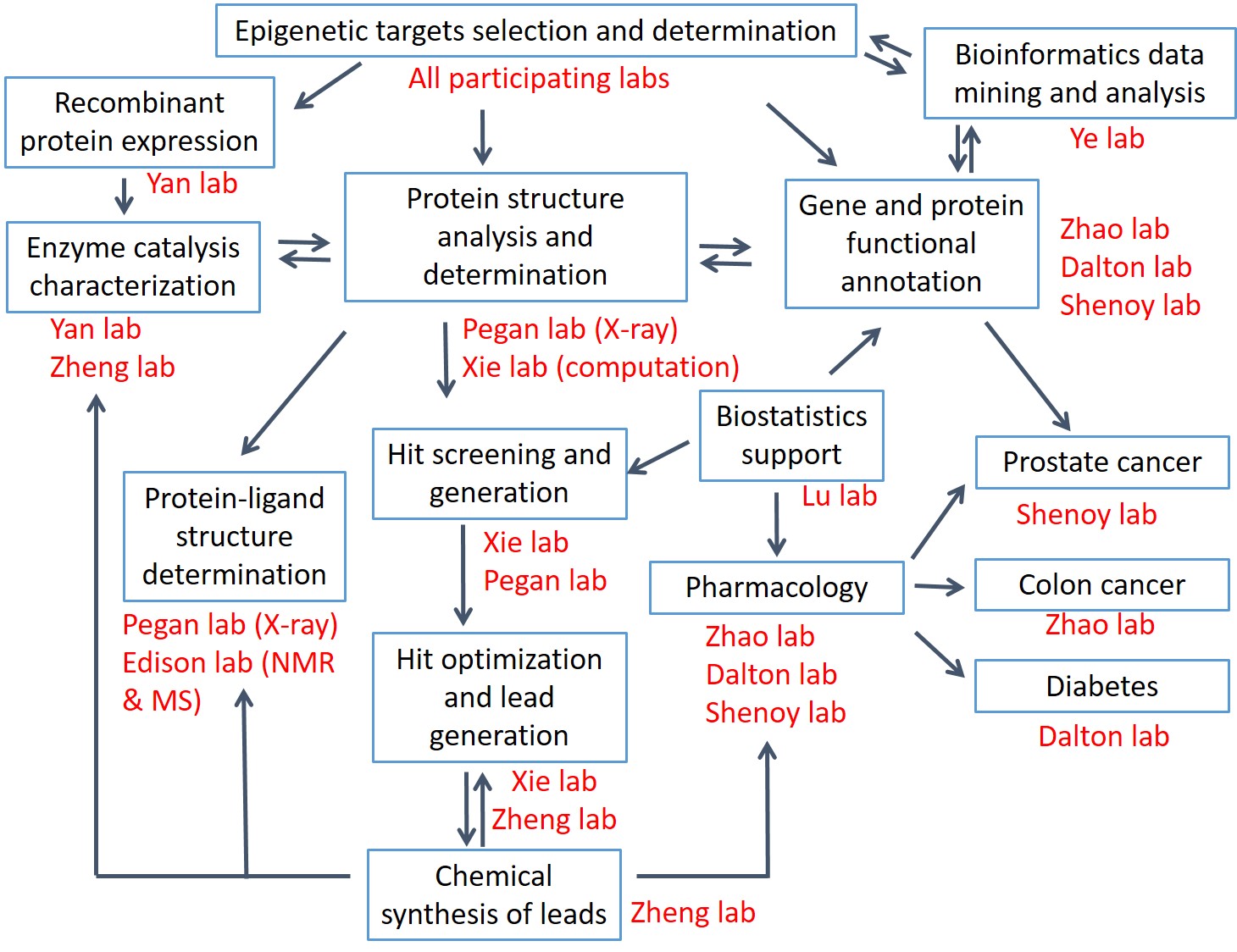Teaming for Interdisciplinary Research Pre-Seed Program
Drug Development in the Epigenetics Domain

“‘Kids in the Classroom’ – stock photography” by Marlayna Cherisse is licensed under CC BY-NC-ND 4.0
Epigenetics has become established in recent years being an important molecular signature of human health and pathology as well as life in general. It is one of the key areas in the National Institutes of Health (NIH) Roadmap for Medical Research which are far-reaching initiatives designed to transform the Nation’s medical research capabilities and improve the translation of research into practice. Epigenetics is also listed as one of the National Science Foundation (NSF)’s 10 Big Ideas prioritized for grant funding. Abnormalities in DNA promoter methylation and histone modifications are frequent epigenetic events throughout the pathogenesis of various diseases such as cancer, diabetes, and neurological disorders. In particular, hyperactivation of oncogenes and/or irregular silencing of tumor suppressor genes is a broadly accepted mechanism for cancer incidence and progression. There is a high pharmacological significance of developing chemical agents to target epigenetic enzymes as a myriad of evidence supports that chromatin-modifying enzymes drive key pathogenesis and represent highly potential therapeutic targets. Owing to the diversity and complexity of disease natures, however, epigenetic mechanisms are far from fully understood. Meanwhile, to date there are very limited small molecule drugs that can effectively target the epigenetics domain of the human proteome. The University of Georgia has diverse but scattered investigators in different divisions or departments who have the expertise to fill in the big gap of epigenetics research and drug discovery. As such, we aim to form a collaborative research team to discuss cutting-edge challenges in epigenetics, with a particular focus on drug development on select key epigenetic targets. We will nail down on a few critical epigenetic enzymes and proteins that are intimately associated with cancer and diabetes and characterize and analyze their chemical catalysis and structural architecture. Such epigenetic targets can be histone methyltransferases or acetyltransferases that are not yet explored in the field (e.g. the methyltransferase candidates that are hypothesized by Petrossian in Mol Cell Proteomics 2011). Then, we will initiate a drug discovery campaign to screen and design small molecule inhibitors of these enzyme targets. Lastly, the identified lead inhibitors will be pharmacologically evaluated in cellular and animal disease models that the team members specialize. Because small molecule compounds have the advantage of targeting biological systems in a rapid, dose-dependent, and reversible manner, the availability and utilization of novel epigenetic inhibitors will generate invaluable tools in the interrogation of the principles of epigenetic mechanisms and how these principles relate to human health and disease. Of more importance is that the discovery of small-size, potent, target-selective, cell-permeable, pharmacologically validated chemical leads of epigenetic enzymes by this collaborative team will hold great potential to be translated into therapeutic candidates via epigenetics inhibition, offering a new avenue of experimental therapy for cancer, diabetes and other epigenetically-deregulated diseases. We envision that a strong research incentive revolving epigenetics will be built up from this collaborative endeavor. All the investigators in the team have highly successful and productive research track records, and we will quickly push through our ideas and generate preliminary results from this Pre-SEED support. Together with the already available published and unpublished results from the individual labs, we have high confidence to submit external grant applications at NIH or other major funding agencies in a very short time of period.
Team Lead
Y. George Zheng
College of Pharmacy
yzheng@uga.edu
Team Members
In Kee Kim
Department of Computer Science
Stephen Dalton
Center for Molecular Medicine
Arthur Edison
Complex Carbohydrate Research Center
Zhenqiu (Laura) Lu
College of Education
Scott Pegan
College of Pharmacy
Somanath Shenoy
College of Pharmacy (Augusta campus)
Yajun Yan
College of Engineering
Kaixiong (Calvin) Ye
Department of Genetics
Zhong-Ru (Paul) Xie
College of Engineering
